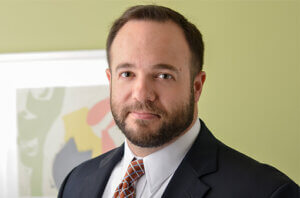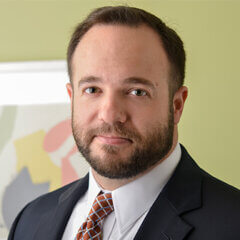 By Greg Care
By Greg Care
Our medical and educational systems bestow a great deal of trust in residency and fellowship programs that, when violated, can have disastrous consequences. One violation I often deal with on behalf of residents is the failure of Program Directors and GME offices to honestly evaluate, promote, and graduate trainees. But this blog entry concerns another type of violation on which two federal courts have recently ruled: liability for submitting false claims to Medicare and/or Medicaid for services performed in graduate medical education programs. As I will discuss below, residents, fellows, and attendings can play a vital (and potentially lucrative) role in preventing their programs from defrauding state and federal medical benefit programs by pursuing False Claim Act actions with the assistance of counsel.
First, a little background on the False Claim Act (FCA). The FCA, which was passed during the Civil War to crack down on extensive fraud perpetrated by war-time suppliers and contractors, has the same basic purpose today: making it illegal to obtain or keep funds from the federal government when the payee knows s/he is not entitled to the funds. Since the 1860s, the FCA has been employed in myriad ways, including in the healthcare industry, which involves billions of dollars in requests for reimbursements under federal benefits programs like Medicare and Medicaid.
Residency and fellowship training is, except in rare instances, paid for through Medicare funding. Teaching hospitals are reimbursed by Medicare for two types of costs: (1) Direct Graduate Medical Education, which includes salaries and fringe benefits of faculty who supervise the residents; and (2) Indirect Medical Education payments, which covers the higher patient care costs typically associated with teaching trainees, such as extra tests or procedures. Each of these reimbursements relies on truthful reporting of all types of data related to the training programs and the activities of their trainees.
As with any medical insurance reporting, the opportunities for fraud abound. The federal government estimates that tens of billions of dollars are improperly paid out of Medicare and Medicaid coffers annually. Recent litigation suggests that part of the problem exists in residency and fellowship programs – a problem that conscientious residents, fellows, and attendings can help address.
Two federal district courts, just three days apart in September 2017, issued significant rulings in separate cases initiated by residents who alleged that their programs submitted false claims to Medicare for graduate medical education costs. These residents exercised their right to sue on behalf of the government (as a “relator”), an action that, in a winning case, entitles them to a percentage of the proceeds of a judgment or settlement that ranges from 15 to 30% depending on their role in the case.
In United States ex rel. Luay D.F. Ailabouni v. Advocate Health and Hospitals Corporation, an Illinois federal court declined to completely dismiss a resident’s claim that the hospital hosting her general surgery residency program defrauded Medicare and Medicaid out of millions of dollars. Instead, the court ordered that the case would be dismissed entirely unless the resident, Dr. Luay Ailabouni, adds specifics to her claims about the procedures in which the hospital used (and billed extra for) non-resident assistants despite the availability of qualified surgical residents whose services were already covered, and where attendings “double scrubbed” into cases to boost billing, among other things. This ruling was primarily the result of the more exacting requirements for alleging fraud, as opposed to negligence or other forms of wrongdoing, which the Illinois federal court applied strictly.
A federal court in New York took a slightly more forgiving approach to the issue of how specifically relators must allege fraud. In United States and New York State ex rel. Irina Gelman v. Glenn J. Donovan, the court rejected a motion to dismiss a podiatry resident’s FCA claim that her program was defrauding Medicaid and Medicare by seeking reimbursement for: the program director’s supervision of procedures that he did not attend, and the services of two residents whose licenses to practice podiatry had lapsed. (The resident, Dr. Irina Gelman, also claims to have been fired in retaliation for raising concerns about these practices.) Unlike the court in Illinois, the New York court ruled that Dr. Gelman’s complaint alleged enough detail about the program’s practices to allow the court to draw a plausible inference that specific false claims would be uncovered. Later stages of the litigation will test whether those specifics are borne out.
These cases are just the tip of the iceberg that has been gathering momentum for years. Residents, fellows, attendings, nurses, accounting staff, and others are in a unique position to serve as whistleblowers on fraud on hospitals and training programs that submit false and fraudulent claims to the government. As these court decisions illustrate, navigating these waters requires guidance from attorneys who have the knowledge and resources to pursue justice.
If you believe that your graduate medical education institution is committing healthcare fraud, consider contacting us to discuss whether our firm can assist in bringing those misdeeds to light while helping you to claim a portion of any recovered funds.
* Content on this website, including blog articles, are proprietary and copyright-protected. If you wish to use all or part of a blog article, we request that you properly attribute the work and include a link to the Brown, Goldstein & Levy webpage on which it appears.
